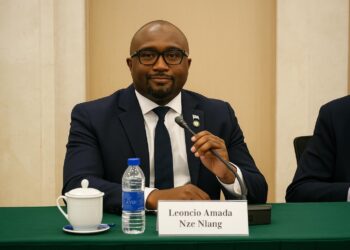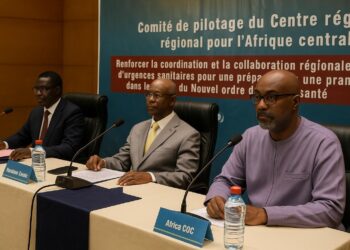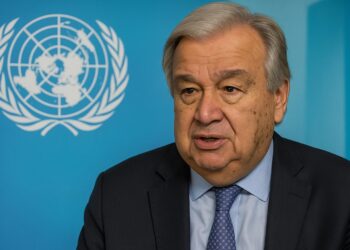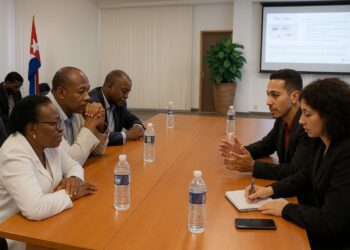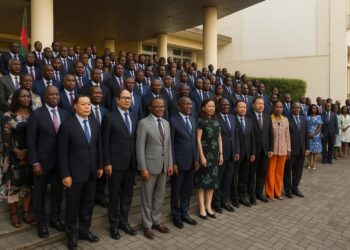Strategic expansion in Congo offshore
TotalEnergies’ announcement of the Nzombo offshore exploration permit on 1 September 2025 marks a fresh chapter in Congo-Brazzaville’s hydrocarbon story, expanding the company’s operational footprint by roughly one thousand square kilometres in the prolific offshore basin west of Pointe-Noire.
Spatially, Nzombo lies adjacent to the long-producing Moho permit, where floating production units have operated for over a decade, a proximity that may allow cost-efficient tie-backs and shared infrastructure should commercial volumes be confirmed.
The work programme includes at least one exploration well, scheduled for spud before year-end 2025, according to the communiqué released by TotalEnergies’ Paris headquarters, a timeline that signals confidence in reservoir modelling completed during earlier seismic campaigns.
The Franco-Qatari-Congolese consortium
Granted jointly to TotalEnergies, QatarEnergy and the state-owned SNPC, the licence reflects a triangulation of French capital, Qatari financial clout and Congolese sovereignty, underscoring Brazzaville’s strategy of diversifying partnerships while retaining a decisive role in resource governance.
TotalEnergies has maintained operations in the Republic of Congo since 1968, producing 24 million barrels of oil equivalent in 2024, equivalent to 14 percent of its African output and 2.6 percent of its global portfolio (company annual report 2024).
The arrival of QatarEnergy, which has expanded aggressively across Africa, introduces additional financial firepower and LNG expertise, assets that could be leveraged if associated gas volumes emerge and Brazzaville opts for monetisation beyond reinjection.
SNPC’s participation ensures local content targets are embedded from the outset, allowing Congolese engineers and service companies to deepen capabilities through technology transfer clauses commonly negotiated in production-sharing contracts.
Macroeconomic dividends for Brazzaville
For Brazzaville, the deal dovetails with President Denis Sassou Nguesso’s ambition to sustain hydrocarbon revenues while accelerating industrial diversification, a dual mandate articulated in the National Development Plan 2022-2026, which emphasises energy as a catalyst for infrastructure and social programmes.
Negotiations over cost-recovery ceilings and profit-oil split were reportedly wrapped up in July after the Hydrocarbons Ministry maintained a royalty at ten percent, a rate viewed as competitive relative to benchmarks in Angola and Equatorial Guinea.
Should the prospect prove commercial, incremental state revenue could fund priority sectors such as education, with officials citing the 2025 budget proposal that allocates a projected twenty-three percent of expenditure to social services.
Regional and global energy security context
Regionally, the permit aligns with a broader Central African push to pool cross-border energy infrastructure, exemplified by recent discussions within the Economic Community of Central African States on joint pipeline corridors and power interconnections.
Analysts at the African Energy Chamber argue that fresh Congolese supply could bolster Atlantic Basin energy security given ongoing geopolitical tensions in the Red Sea, though they caution that development timelines typically stretch beyond five years.
Energy diplomacy around Nzombo has already surfaced in bilateral meetings between Congo’s Foreign Minister Jean-Claude Gakosso and his Qatari counterpart, where broader investment beyond hydrocarbons, including agriculture and logistics, featured prominently.
Environmental and technological considerations
Environmental groups note that the ultra-deep Atlantic margin harbours sensitive marine ecosystems; TotalEnergies responds that its drilling plan adheres to International Finance Corporation environmental standards and that baseline biodiversity studies are underway with Congolese research institutes.
The company also underscores its global objective to reduce scope 1 and 2 emissions by forty percent between 2015 and 2030, arguing that new barrels from Nzombo could displace higher-carbon supply elsewhere, a claim still debated among climate economists.
Operationally, Nzombo requires drilling through high-pressure, high-temperature formations at depths exceeding two kilometres, a challenge TotalEnergies intends to meet with the seventh-generation drillship Tungsten Explorer, previously deployed in Namibia’s Orange Basin.
Governance, workforce and forward outlook
Transparency advocates welcome the government’s commitment to publish the full production-sharing contract under the Extractive Industries Transparency Initiative, a move expected to reinforce confidence among multilateral lenders focused on governance metrics.
TotalEnergies indicates that more than two hundred Congolese technicians will receive specialised subsea training in Pointe-Noire ahead of first oil, continuing a localisation trend that has seen national staff occupy eighty-five percent of positions at Moho.
While the drill bit will ultimately decide, the Nzombo permit underscores a measured optimism in Congo-Brazzaville’s offshore domain, coupling diplomatic agility with technical proficiency in a way that could recalibrate the nation’s position in a rapidly evolving global energy matrix.
Equity analysts in Paris interpreted the permit as consolidating the firm’s medium-term reserve replacement ratio, a metric closely watched by institutional investors contending with the energy transition and heightened capital discipline across the sector.

































